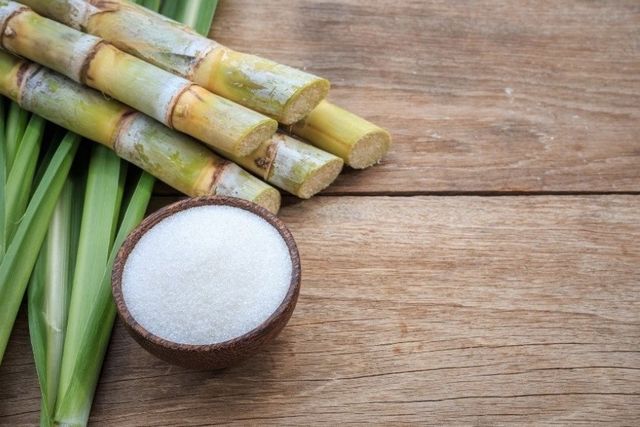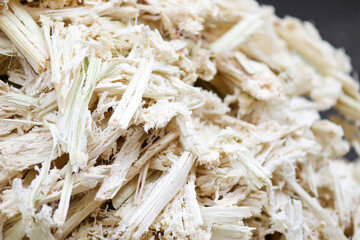From Sugarcane Product to Biofuels: The Versatile Uses of Sugarcane
From Sugarcane Product to Biofuels: The Versatile Uses of Sugarcane
Blog Article
Lasting Sugarcane Products: From Sweeteners to Eco-Friendly Product
The capacity of sustainable sugarcane products expands past typical sugar to include a variety of environment-friendly goods, presenting an engaging instance for their combination into modern customer techniques - sugarcane product. As the globe grapples with pressing ecological problems, sugarcane becomes a functional source efficient in attending to both dietary requirements and sustainability objectives. This conversation will explore how innovations in sugarcane farming and handling can result in significant innovations in naturally degradable packaging and eco-conscious fabrics. What ramifications might these developments have for future customer options and environmental effect?
Overview of Sugarcane Sustainability
As the need for eco-friendly products expands, recognizing sugarcane sustainability becomes progressively important. Sugarcane, a flexible plant, is cultivated mainly in exotic and subtropical regions, and its sustainability is critical for both environmental wellness and financial practicality. Lasting sugarcane farming techniques concentrate on reducing eco-friendly influence while maximizing efficiency and earnings.
Trick aspects of sugarcane sustainability include effective land usage, minimized chemical input, and boosted water management. Practices such as crop rotation, integrated insect administration, and natural fertilizing add to dirt wellness and biodiversity. Additionally, innovative innovations, such as precision agriculture, assistance enhance resource use and decrease waste.
Additionally, sugarcane is a renewable energy, with spin-offs that can be used in different markets, from biofuels to biodegradable plastics, thus decreasing reliance on nonrenewable fuel sources and decreasing carbon footprints. Certifications like the Bonsucro basic motivate sustainable practices throughout the supply chain, advertising openness and responsibility.

Sugarcane-Based Sweeteners
Using sugarcane as a main source, sugarcane-based sugar have actually acquired prominence as all-natural options to refined sugars and artificial sugar (sugarcane product). These sweeteners, originated from the removal and processing of sugarcane juice, supply a variety of products that accommodate diverse consumer choices, consisting of organic and minimally refined choices
Amongst one of the most noteworthy sugarcane-based sugar are raw walking stick sugar, panela, and molasses. Raw cane sugar preserves more of the all-natural flavors and nutrients located in sugarcane, making it a preferred choice for health-conscious customers. Panela, a conventional Latin American sugar, is produced by vaporizing sugarcane juice, preserving its all-natural minerals and vitamins. Molasses, a byproduct of sugar removal, is abundant in anti-oxidants and necessary nutrients, acting as a healthy sweetening agent in different cooking applications.
The expanding demand for sugarcane-based sweeteners is driven by raising awareness of health and wellness and sustainability concerns related to traditional sugar. By choosing sugarcane-derived products, consumers not just sustain sustainable agricultural methods yet also contribute to a much healthier way of living, aligning their dietary options with their ecological worths.
Eco-friendly Packaging Solutions
Becoming a feasible choice to standard plastics, biodegradable packaging services obtained from sugarcane are changing the product packaging sector. These cutting-edge materials provide an eco-friendly choice that attends to the expanding worries over plastic air pollution. Making use of the all-natural sugars located in sugarcane, suppliers are creating numerous kinds of eco-friendly product packaging, consisting of movies, containers, and wraps that break down much my review here more quickly than conventional plastics.
The main benefits of sugarcane-based product packaging lie in its sustainable sourcing and its ability to break down right into non-toxic results. Unlike fossil fuel-derived plastics, which can linger in the setting for centuries, sugarcane redirected here packaging typically breaks down within a couple of months under correct conditions. This decrease in waste not only minimizes land fill overflow but likewise decreases the carbon footprint linked with packaging materials.
Furthermore, sugarcane-derived packaging keeps robust efficiency qualities, offering comparable durability and functionality to standard choices. As customers and services increasingly focus on sustainability, the adoption of biodegradable product packaging options represents a substantial step in the direction of a circular economy, where products are recycled and regrowed rather than disposed of. This shift not just enhances brand name image however also adds to a more lasting future for the planet.
Eco-Friendly Textiles and Fabrics
Eco-friendly textiles and textiles are acquiring grip in the fashion and home products markets as consumers significantly demand lasting alternatives to standard products. Among the significant options are materials stemmed from sugarcane, which provide an ecologically liable alternative to artificial fibers. These fabrics are produced with a procedure that makes use of the renewable sources located in sugarcane, significantly lowering dependence on petroleum-based materials.

As the market for sustainable fabrics increases, customers can look ahead to innovative layouts that incorporate design with environmental responsibility. Ultimately, eco-friendly fabrics and materials represent a significant action towards decreasing the fashion sector's ecological footprint while catering to the growing demand for accountable consumer selections.
Technologies in Sustainable Farming
Transforming farming practices, advancements in sustainable farming are transforming the means crops are grown and handled. These advancements focus on Visit This Link decreasing environmental effect while making the most of performance and productivity.

In addition, agroecology, which incorporates ecological principles into farming, promotes biodiversity and dirt wellness. Practices such as plant turning, cover chopping, and intercropping foster resilient communities that can stand up to bugs and environment variants - sugarcane product. In addition, using natural plant foods and biopesticides adds to much healthier dirts and ecological communities

Together, these innovations are not just improving the agricultural landscape but also adding to a much more sustainable future for sugarcane and various other plants, lining up agricultural exercise with ecological stewardship.
Verdict
Sustainable sugarcane products stand for a considerable improvement in environment-friendly options, spanning from all-natural sweeteners to biodegradable items. The growing of sugarcane through lasting methods not only boosts environmental health yet additionally adds to economic practicality. As consumer preferences increasingly lean in the direction of sustainable options, the versatility of sugarcane as a renewable energy comes to be progressively relevant. This trajectory highlights the importance of ongoing development and dedication to sustainable techniques within the sugarcane market, cultivating a much more lasting future.
The possibility of sustainable sugarcane products prolongs past traditional sweeteners to incorporate a range of environmentally friendly products, offering a compelling situation for their combination right into modern consumer methods. Lasting sugarcane farming techniques concentrate on reducing environmental effect while optimizing performance and profitability.
Sustainable sugarcane products stand for a substantial development in environment-friendly choices, extending from all-natural sweeteners to biodegradable products. The growing of sugarcane with lasting techniques not just boosts ecological health but also contributes to economic practicality. As consumer preferences increasingly lean towards sustainable options, the versatility of sugarcane as a renewable resource comes to be significantly pertinent.
Report this page